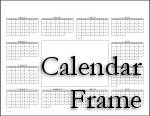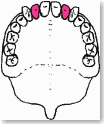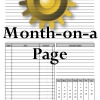My Thoughts on Using Jensen's Format Writing
Topics and The Student
The student who has nothing to write about might think that this class is very frustrating. When you start having classes you might see what I mean, but I hope not. If your student thinks that he has nothing to write about, encourage him to keep thinking about a possible topic. Typically the student will discover that he does know enough to write about many things. There are a multitude of everyday things that the student can write about. Do not worry, the author lists quite a few sample topics for the assignments. It is possible that none of those topics will interest your student, however; from looking at the lists, one can get an idea of how commonplace the topics can be.
Grammar and Spelling
Prerequisites:
It is my opinion that a student should have a good working knowledge of
grammar and spelling before attempting this class. If the student is a
poor speller, then he must be able to look up words because spelling errors
will count against him in this course as do all of grammar errors.
Grammar Instruction:
There is no grammar instruction in Jensen's Format Writing. As mentioned in Prerequisites, the student should have already studied grammar. However, I suggest that the student continue to study grammar during this course. You can purchase a level appropriate grammar curriculum or do what I did. I assigned grammar lessons from a grammar handbook, but I also assigned grammar and style lessons based upon the grammar and style errors that my children made in their paragraphs and essays. Consider this as filling in grammar holes and this method worked well for my high school aged children. I used Bob Jones English Handbook for Christian Schools for the
purpose of grammar assignments.
Speaking of grammar assignments, the most challenging part of this class for me was grading papers. Often the children's assignments were mechanically good, however, there were sentences or parts of sentences that were awkward. Awkward writing is caused by an oddball sentence structure and/or poor diction.
Diction
choice of words
Active Voice:
The student should be encouraged to write in a strong voice and use strong word choices. In general, expository writers should sound like they believe what they are writing is true, hence, the strong
voice and strong word choices.
Contractions:
Decide before starting the class if you will allow the use of contractions in the
writing assignments. If you decide against contractions and I recommend that you do, include this
information in your class requirements paper that will be a part of your class syllabus.
Clichés and Slang:
I strongly recommend that you discourage the use of slang, sayings, and clichés because they are overused and weak. Furthermore, those readers who are not familiar with the slang
and clichés will not understand the writer. If you decide that slang and
clichés will count against the student's grade, include that information
in your class requirements paper.
References for Diction
write precisely what you mean
Writing with Precision - How to Write So That You Cannot Possibly Be Misunderstood, by Jefferson D. Bates
The New Oxford Guide to Writing has a section on diction. Diction, Part V, begins on page 177 and contains the following chapters: Meaning (words), Clarity and Simplicity (word choice), Concision (word palette), and Figurative Language.
The New Oxford Guide to Writing is a writing reference, it is not a workbook with problem sets.
Part V An Approach to Style (with a List of Reminders) in the book The Elements of Style by Strunk and White seems to be about diction.
Note about Part V: Part V An Approach to Style (with a List of Reminders) is not in the original book, so while you may read the original version of The Elements of Style online, Part V An Approach to Style (with a List of Reminders) is not included in free online versions.
The Elements of Style is a style reference, it is not a workbook with problem sets.
BJU's English Handbook for Christian Schools has a small section called "17c Revision: A Checklist" that has a list of points for the student to consider when reviewing his paper.
Problems sets from English Handbook for Christian Schools that are related to wording and word usage
1. Regarding unclear, ambiguous, implied references
- (ex. When Dr. Bo spoke with Dr. Wu, he appeared tired. -- ambiguous -- who appeared tired) 9c - sets 1-5
2. Regarding action verbs, accuracy, specific words - 14c - sets 1-4
3. Regarding logical sentences - 15a-15f
Online Resources:
Abstract and Concrete Terms, General and Specific Terms http://grammar.ccc.commnet.edu/grammar/composition/abstract.htm
Building a Better Vocabulary
http://grammar.ccc.commnet.edu/grammar/vocabulary.htm
Tone: A Matter of Attitude
http://grammar.ccc.commnet.edu/grammar/composition/tone.htm
Grading Writing Assignments
See this page to read about grading
https://donnayoung.org/english/books/jensens-format-writing-grading.htm
Hello Visitor!
I am currently working on this website to add to its ginormousness. Thank you for visiting, and please subscribe yearly to access my many printable files! Donna Young
May 13, 2021

 The calendar frame
The calendar frame In all there are 15 different G&A files.
In all there are 15 different G&A files. Teeth- Printable Files and Quiz
Teeth- Printable Files and Quiz


